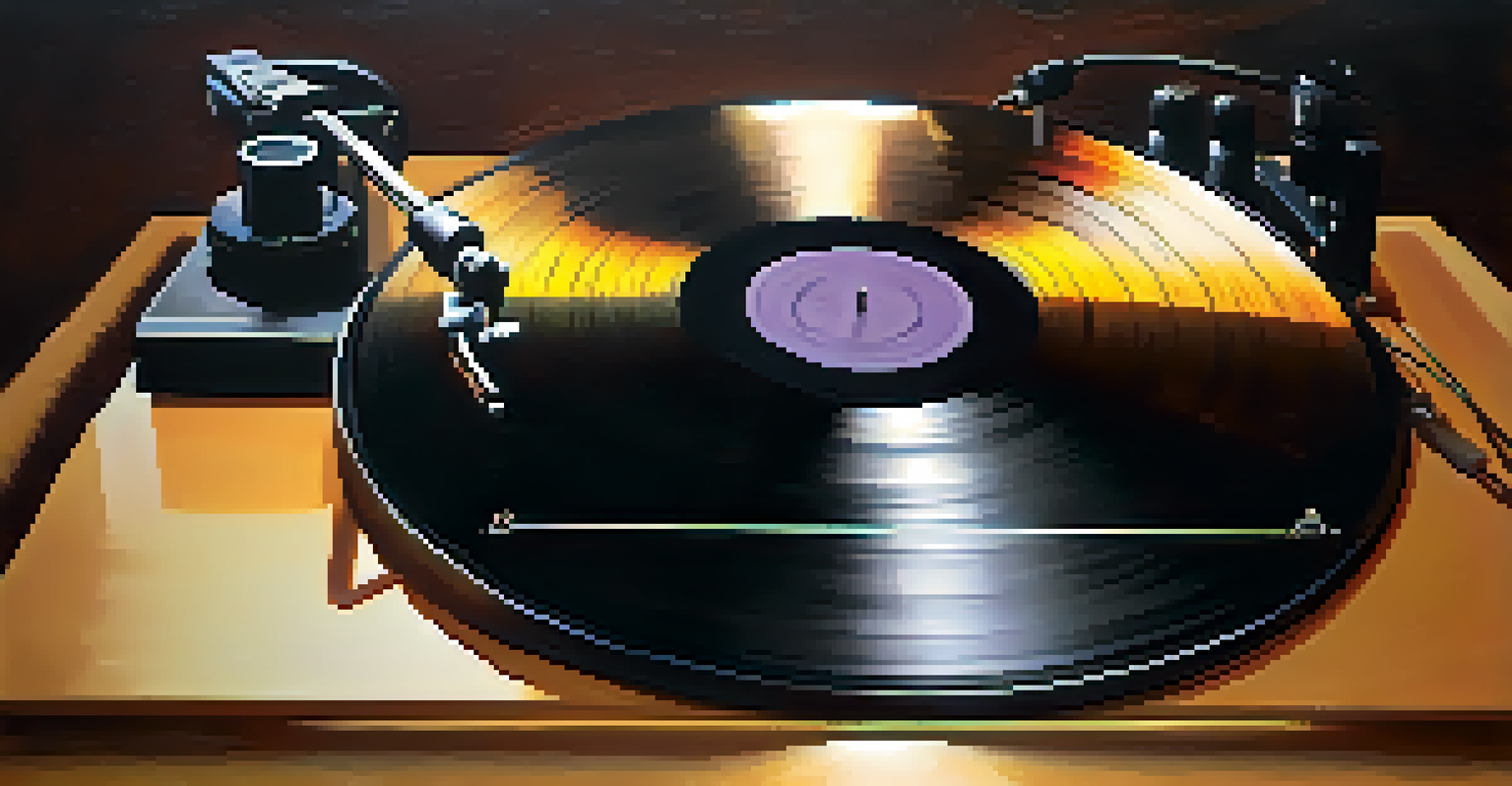Understanding Music Licensing: A Comprehensive Guide to Rights

What is Music Licensing and Why is it Important?
Music licensing is the process of obtaining permission to use music in various forms, whether it’s for a film, advertisement, or podcast. Without proper licensing, using someone else's music can lead to legal troubles and hefty fines. This importance becomes clear when considering how music can enhance the emotional impact of a project, making licensing a crucial step in the creative process.
Music is what feelings sound like.
Think of music licensing as a ticket to a concert. Just as you need a ticket to enjoy the live performance, you need a license to enjoy the benefits of someone else's music. It ensures that artists and creators are compensated for their work, which in turn fosters a thriving creative community.
Understanding music licensing not only protects you legally but also supports the artists whose talents contribute to your projects. By respecting these rights, you contribute to a culture of creativity and collaboration.
Types of Music Licenses Explained
There are several types of music licenses, each serving different purposes. The most common include synchronization licenses, which allow you to pair music with visual media, and mechanical licenses, which cover the reproduction of music in physical formats. Understanding these types helps you navigate the licensing landscape effectively.

For instance, if you’re creating a video for social media and want to use a popular song, a synchronization license is what you need. On the other hand, if you're planning to press vinyl records of your music, a mechanical license is necessary. Each license has its own terms and costs, so being informed can save you time and money.
Importance of Music Licensing
Music licensing is essential for legally using music in projects, ensuring artists are compensated and avoiding legal issues.
Additionally, there are performance licenses, which cover live performances and public displays of music. This variety of licenses ensures that creators are protected across different platforms and mediums, enhancing the overall value of their work.
Understanding Copyright in Music Licensing
Copyright is the legal foundation of music licensing, granting the creator exclusive rights to their work. This means that artists can control how their music is used, ensuring they receive credit and compensation. Understanding copyright helps you respect and navigate the rights of music creators effectively.
Without music, life would be a mistake.
Imagine you’ve written a great song. Copyright gives you the power to decide who can play it, record it, or use it in any way. This control is vital for creators to maintain their artistic integrity and receive fair compensation for their hard work.
When you’re dealing with music licensing, it’s essential to know that copyright laws can vary by country. This global perspective on copyright is important, especially for artists and businesses operating internationally, as it affects how music can be used and shared.
The Role of Performing Rights Organizations (PROs)
Performing Rights Organizations (PROs) play a significant role in music licensing by managing the rights of songwriters and composers. They collect royalties on behalf of artists when their music is performed publicly, whether in venues, on the radio, or online. This means that when you license music, you may also need to deal with a PRO.
Think of PROs as the middlemen who ensure that artists get paid for their work. They monitor music usage and distribute royalties, making it easier for businesses to comply with licensing laws. Joining a PRO can be beneficial for artists, as it provides a streamlined process for royalty collection.
Types of Music Licenses
Different music licenses, such as synchronization and mechanical licenses, serve specific purposes and understanding them is crucial for effective navigation.
For businesses, understanding how PROs operate can save you from potential legal pitfalls. By obtaining the necessary licenses through a PRO, you can confidently use music in your projects without worrying about infringing on copyright.
Navigating the Licensing Process: Step by Step
Navigating the music licensing process can feel overwhelming, but breaking it down into steps makes it manageable. Start by identifying the type of music you want to use and the corresponding license you need. Once you know what you’re looking for, you can approach the right rights holders or PROs.
Next, gather information about the music and its creators. This could involve researching the song’s copyright status and any relevant PROs. Having this information ready will streamline the process, ensuring you have everything you need to secure your license.
Finally, don’t forget to keep thorough records of all licensing agreements. This documentation can protect you in case of disputes and helps you maintain transparency with artists. By following these steps, you can confidently navigate the music licensing landscape.
Common Misconceptions About Music Licensing
There are several common misconceptions about music licensing that can lead to confusion. One of the biggest myths is that using a song for non-commercial purposes doesn’t require a license. In reality, even personal use can infringe on copyright, so it’s always best to err on the side of caution.
Another misconception is that purchasing a song online automatically grants you the rights to use it for any purpose. In many cases, a purchase might only provide limited rights, and additional licensing may be required for broader uses. This misunderstanding can lead to unexpected legal issues down the line.
The Impact of Technology on Licensing
The rise of digital platforms has transformed music licensing, creating new challenges and opportunities for artists and businesses.
Clarifying these misconceptions is crucial for anyone involved in music creation or usage. By educating yourself and others about the realities of music licensing, you can foster a respectful and compliant approach to using music in your projects.
The Future of Music Licensing in a Digital World
As technology evolves, so does the landscape of music licensing. The rise of streaming services and social media has changed how music is consumed and shared. This shift has led to new challenges and opportunities for both artists and businesses navigating the licensing terrain.
For example, platforms like YouTube and TikTok have created unique licensing demands, requiring artists to adapt quickly to ensure they receive proper compensation. This changing environment calls for flexibility and understanding from all parties involved in music licensing.

Looking ahead, it’s essential to stay informed about trends and changes in music licensing. By embracing new technologies and understanding their impact on licensing, you can ensure that you’re equipped to navigate the evolving world of music rights.